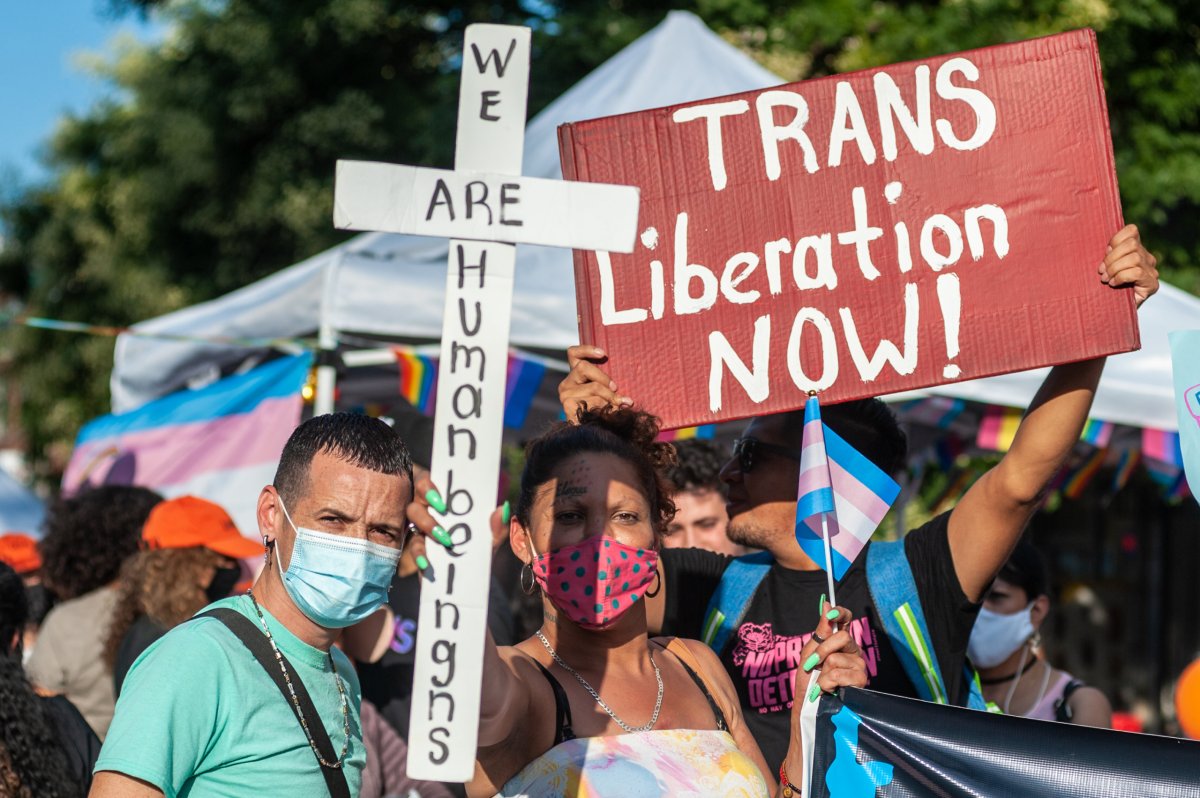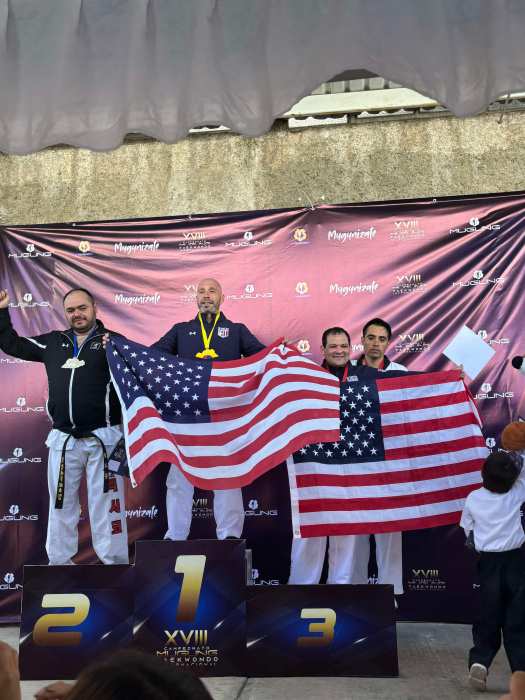The 10th annual Trans Latinx Night at Corona Plaza in Jackson Heights saw more than 200 community members join the festivities and calls for an end to discrimination on Tuesday, Aug. 2.
Within 10 years, the event by the Trans Immigrant Project (TRIP), an LGBTQ immigrant advocacy division of Make the Road New York, has grown from a small community march demanding employment equality to a major annual event calling for an end to transgender violence and the criminalization and detention of trans people.
This year, event organizers canceled the march due to the ongoing COVID-19 crisis. Instead, the group rallied for transgender rights in the plaza, featuring transgender speakers who shared their stories and lively performances by transgender entertainers.
Attendees — some carrying signs with the image of Roxsana Hernández, a Honduran transgender woman who died in ICE custody in 2018 — criticized the Biden-Harris administration, which they say still has to live up to its campaign promise to improve the lives of immigrants and the LGBTQ+ community.
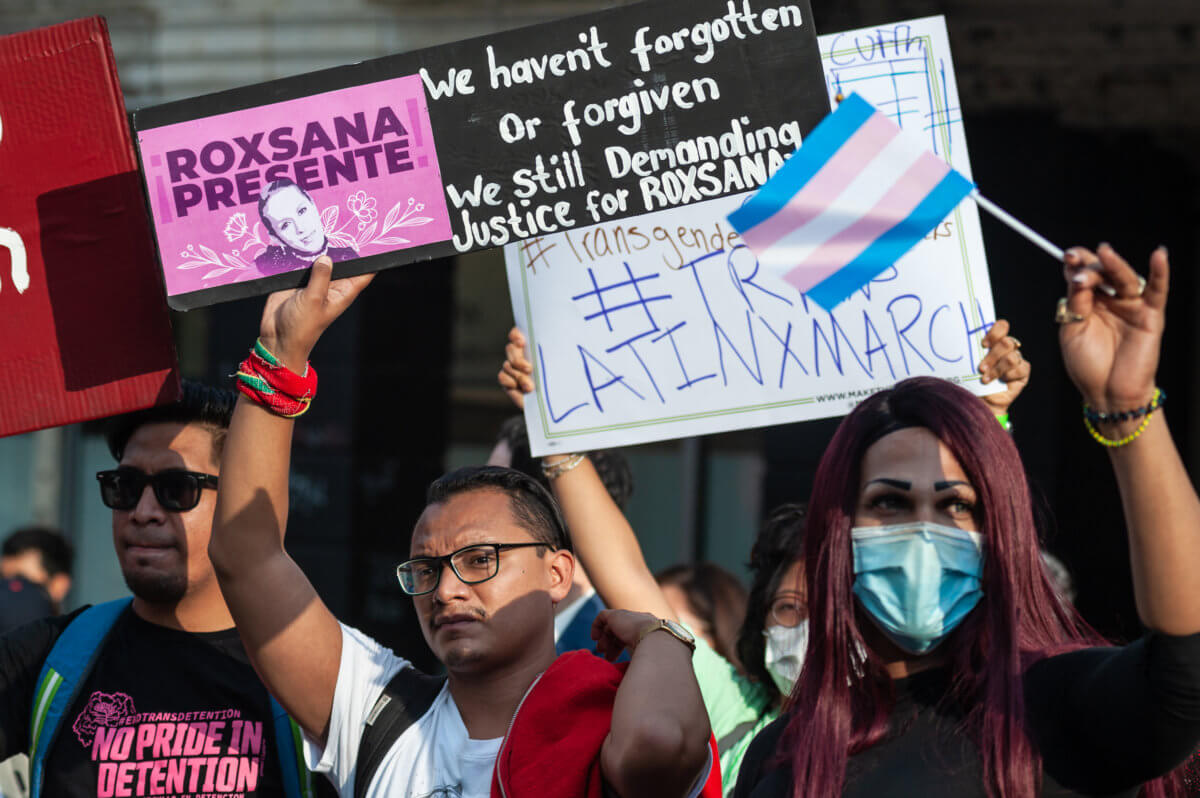
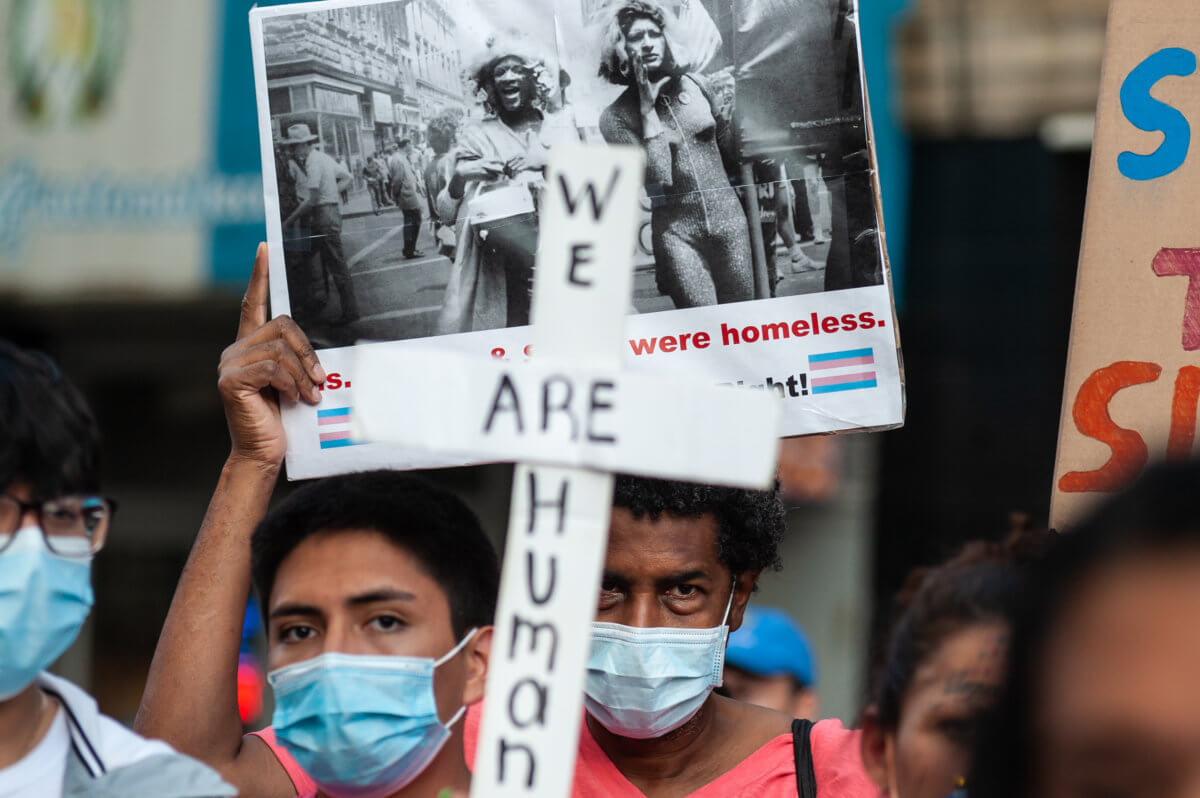
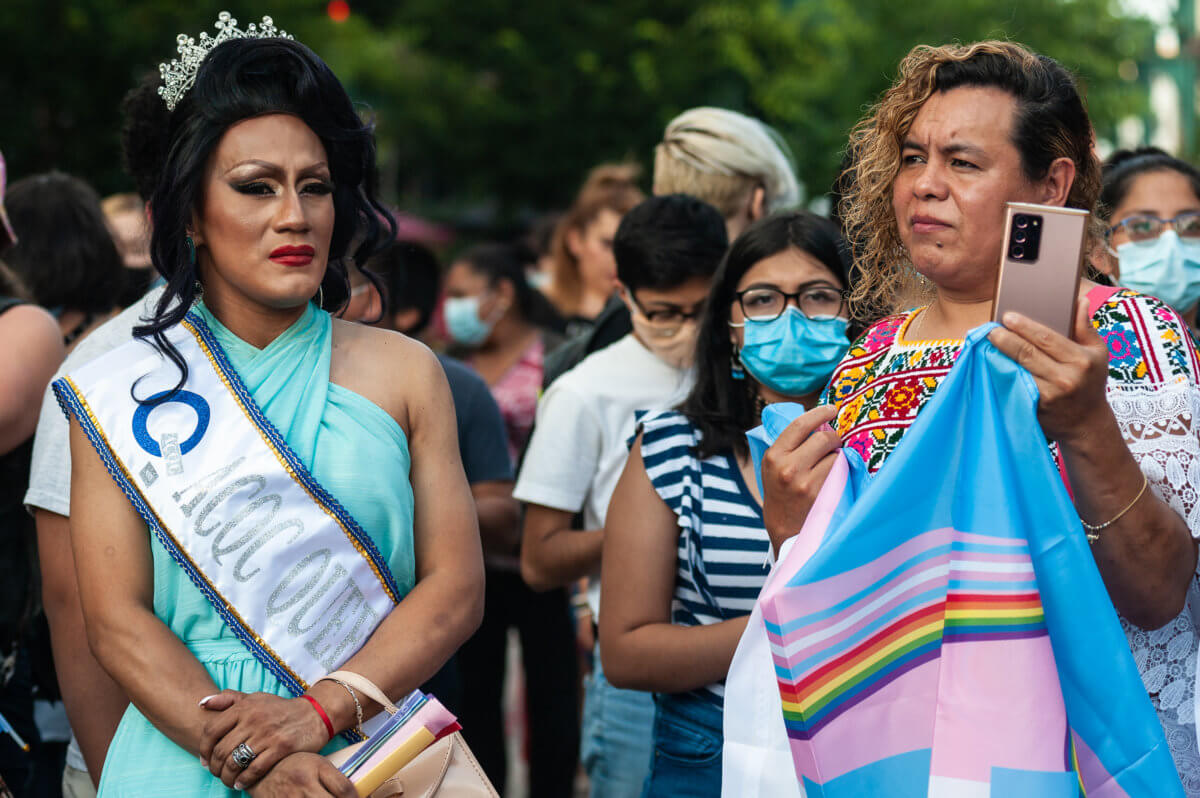
They demanded the administration end the detention of Black queer and trans immigrants and the passage of a pathway to citizenship for all undocumented people. Advocates also called for the decriminalization of sex work in New York and the disbandment of the NYPD’s vice squads which, activists say, disproportionately target and criminalize trans women of color.
Tiffany Jade Monroe came to the U.S. from Guyana. She fled her country after years of emotional and physical abuse as well as homelessness after her parents abandoned her.
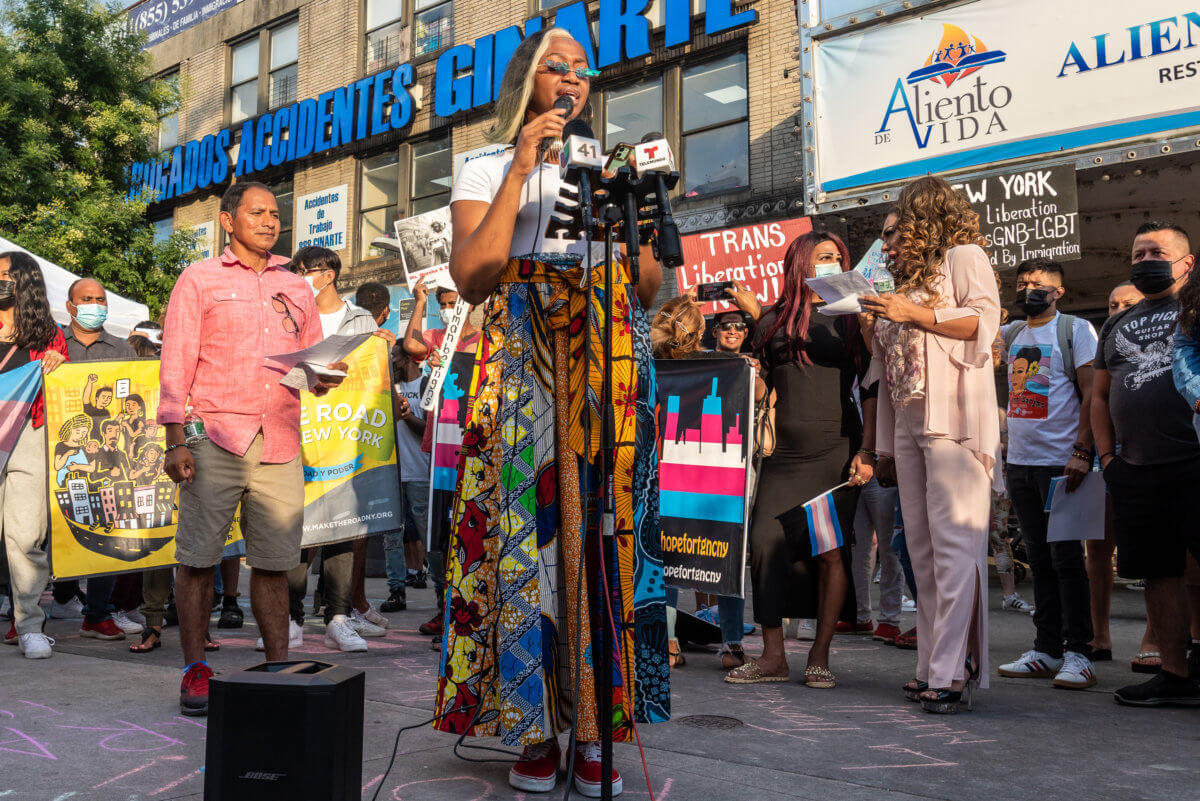
Currently, she lives with her aunt, who she described as transphobic, in South Ozone Park. She called out transgender discrimination, lack of affordable housing and employment opportunities for transgender people.
She reminded the crowd that Black and Brown trans women are still killed at record numbers by their partners, family members and Black men and demanded an end of the brutal killings.
“We will not be pushed into the shadows, be silenced or hide within our own communities of color,” Monroe said. “I say this to you as a scared, Black trans woman who fears her name will one day be added to a ‘say their names’ list.”
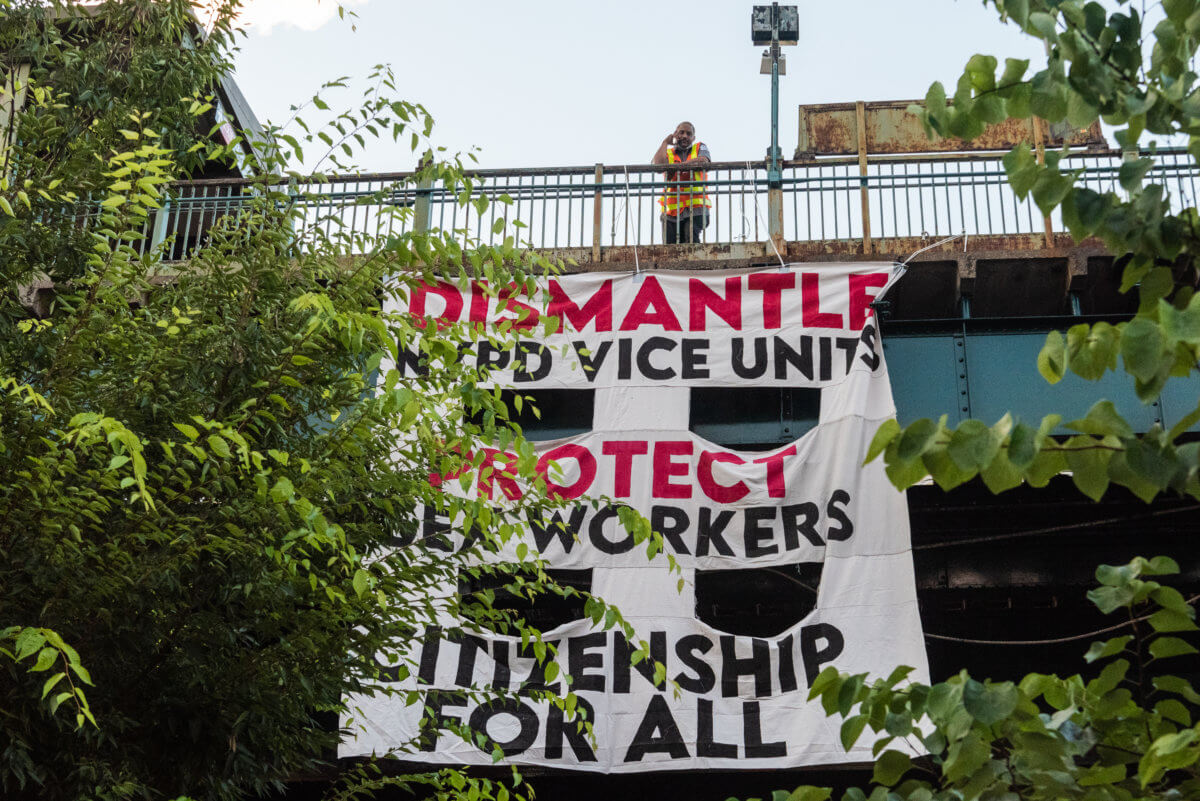
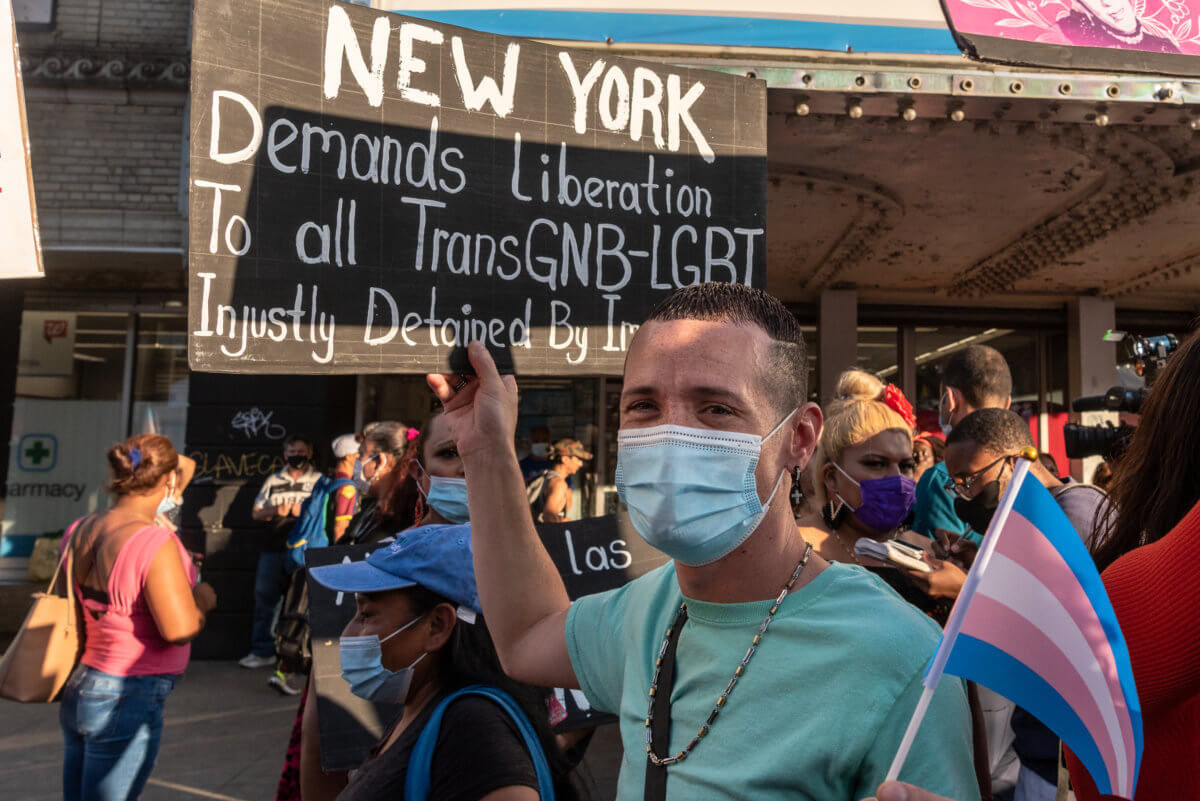
While transgender speakers shared their stories, a group of activists unfurled a large banner from the 7 line elevated platform with three demands: “Dismantle NYPD Vice units,” “protect sex workers” and “citizenship for all.”
Demonstrators cheered the action while pink, blue and white powder, representing the colors of the trans flag, was shot into the air.
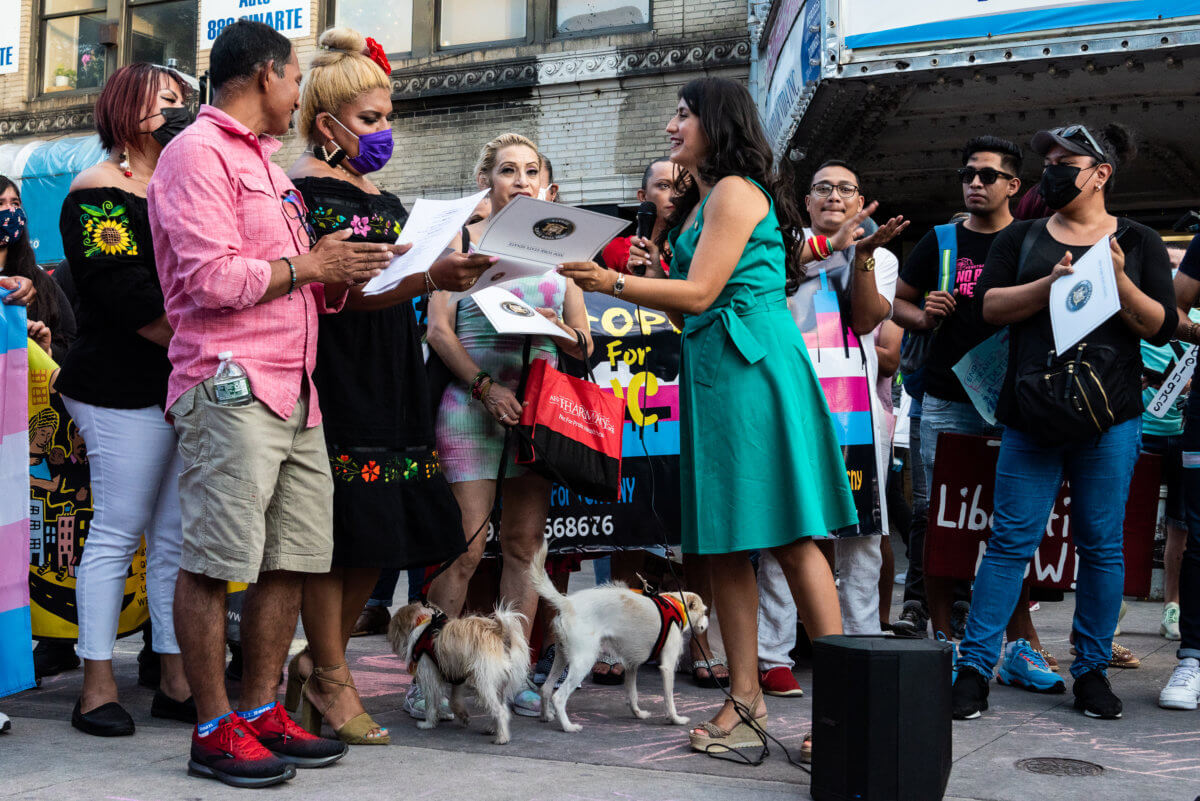
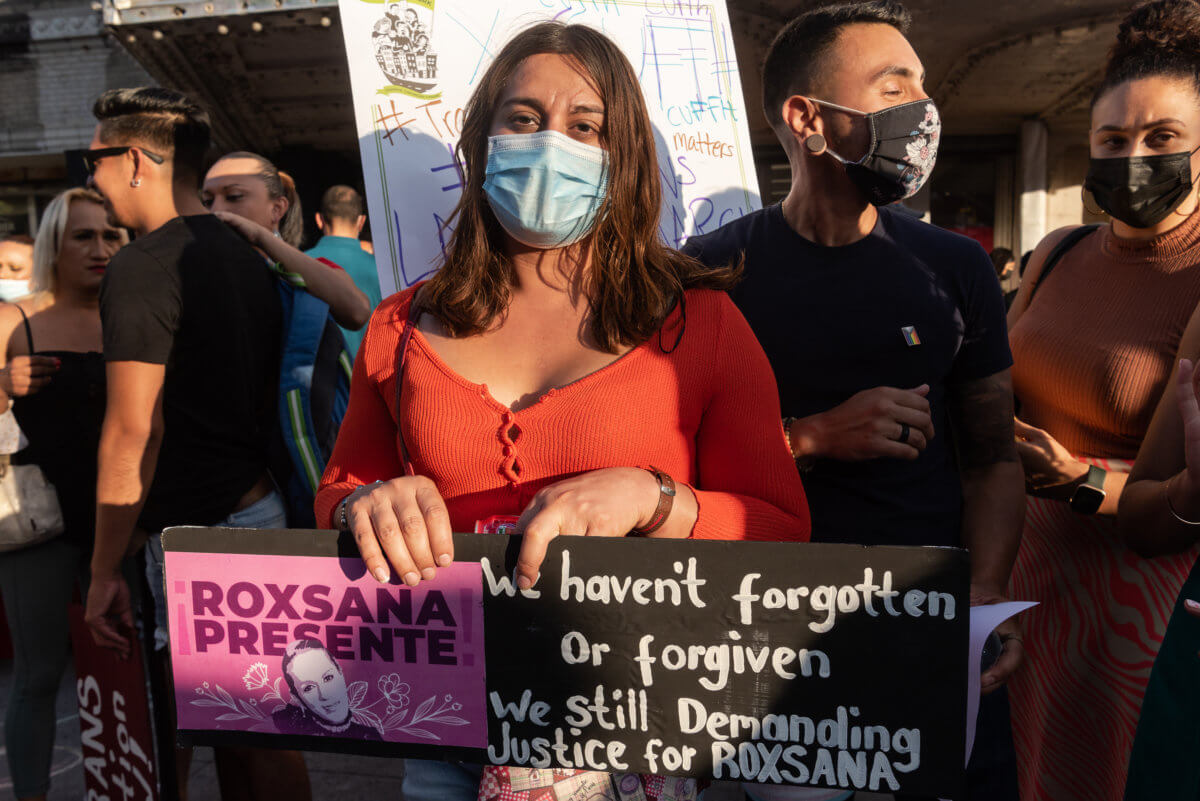
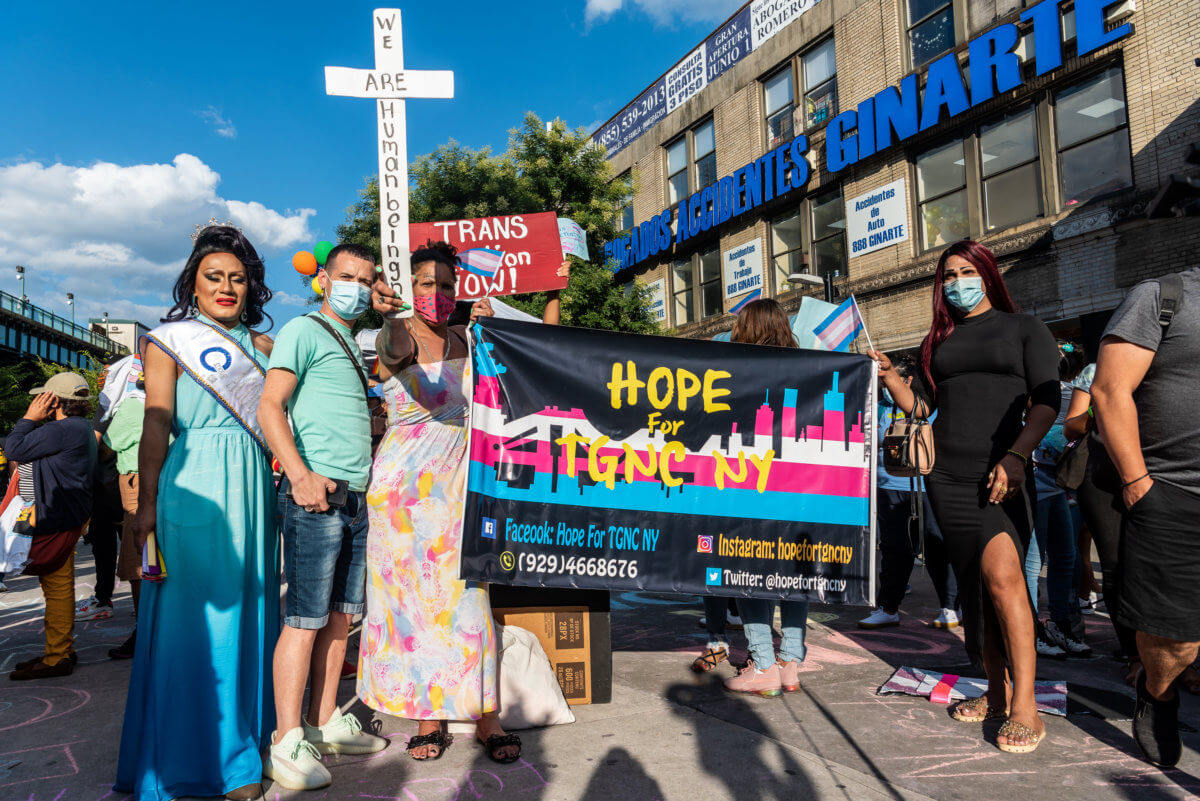
The emcees of the event, Mario Chavez and Geraldine Monroy, shared their stories with QNS, with the help of translator and Make the Road NY organizer Yatziri Tovar.
Chavez said he was at the rally for one simple reason: he knows what discrimination from family and society feels like after he came out as gay when he was 15 years old.
“They turned their back on me,” Mario shared. “Before that, everything was love, everything was sweet. Even when I graduated as an accountant and when I went out looking for a job, people discriminated against me because of my sexual orientation.”
Geraldine Monroy, a transgender woman, came to the U.S. two years ago from Mexico and was held in an all-male detention center in California for four months.
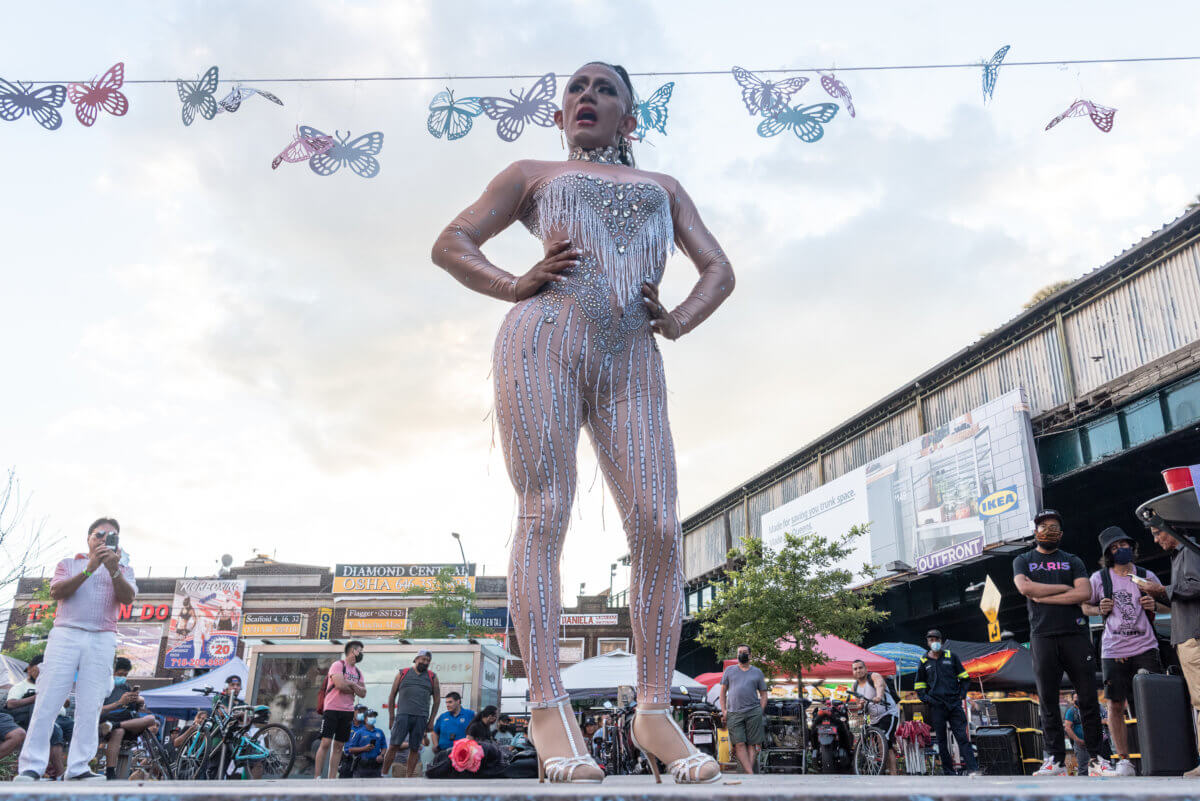
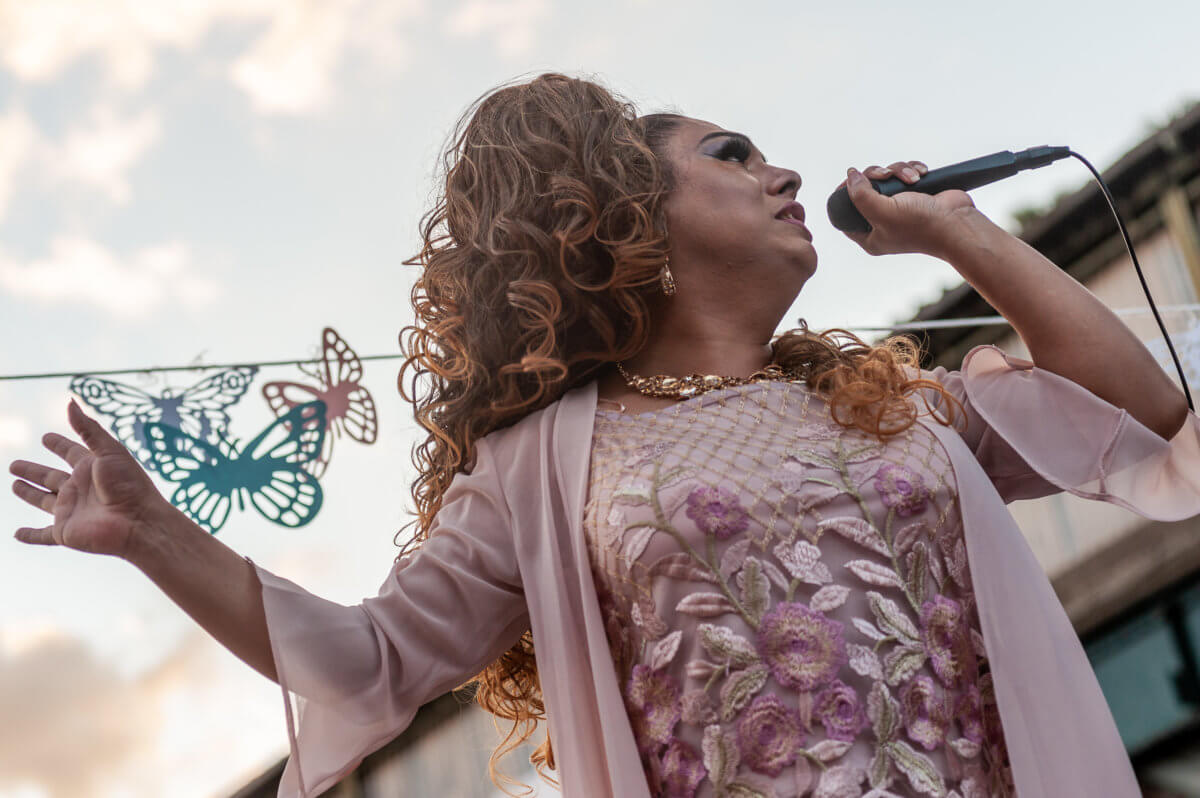
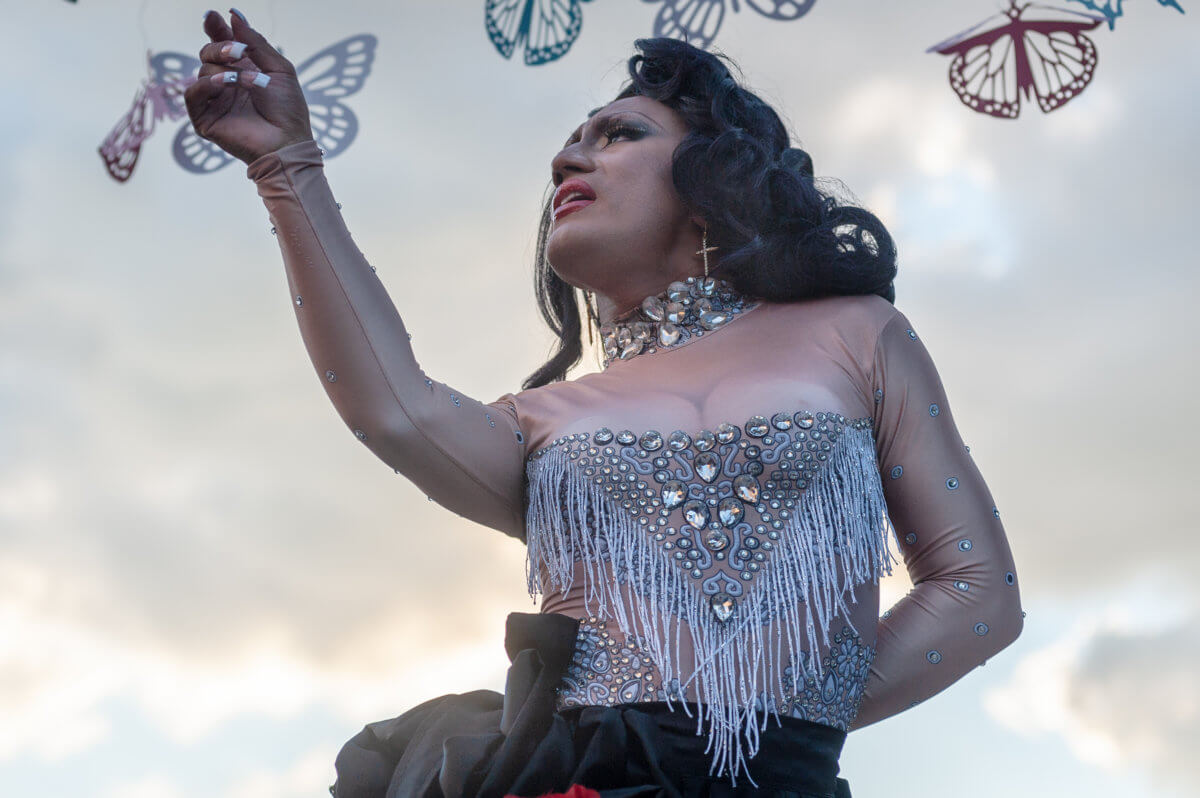
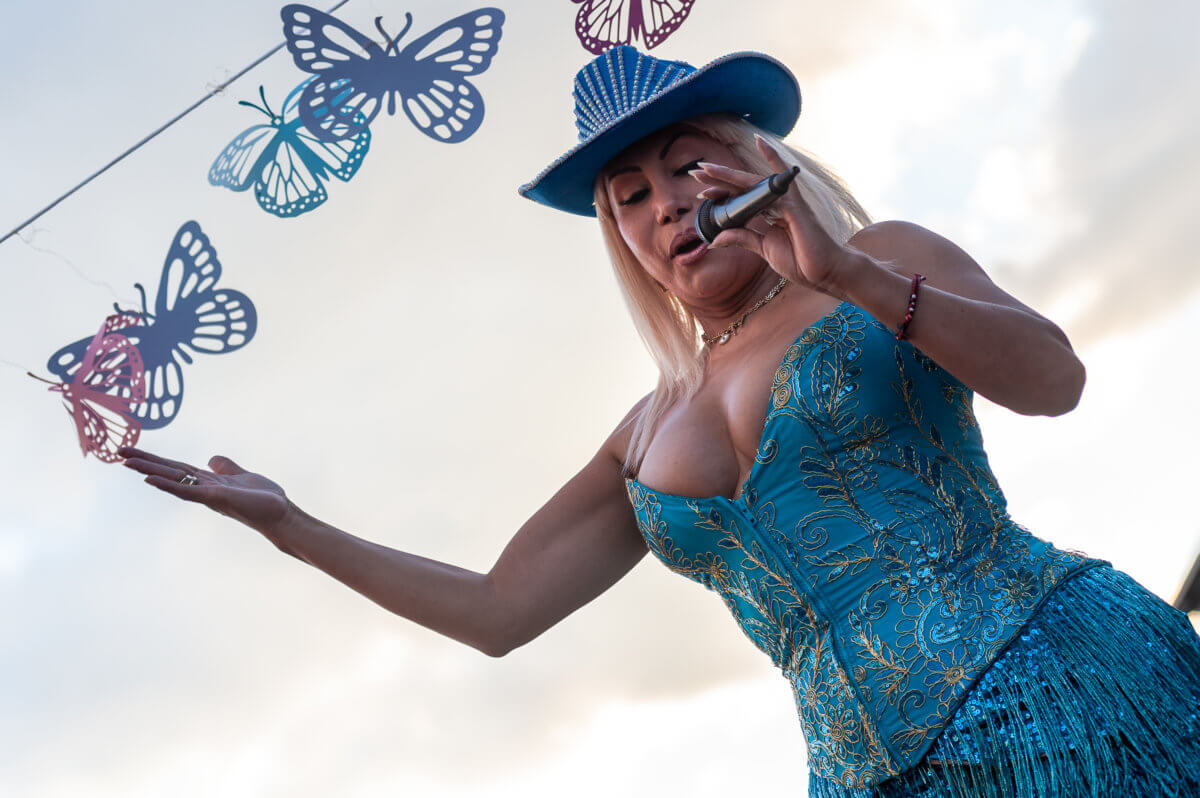
The singer, entertainer and stylist left Mexico because she was being persecuted in her home country and said it didn’t matter that she was a professional singer when she arrived in New York.
“I had to start at the very bottom. I know that together we fight. And whatever we get out of this will also benefit me,” said Monroy, who has worked as a cleaner and caretaker in New York City. “But with the help of these organizations, I’m able to lift myself up and keep going.”

